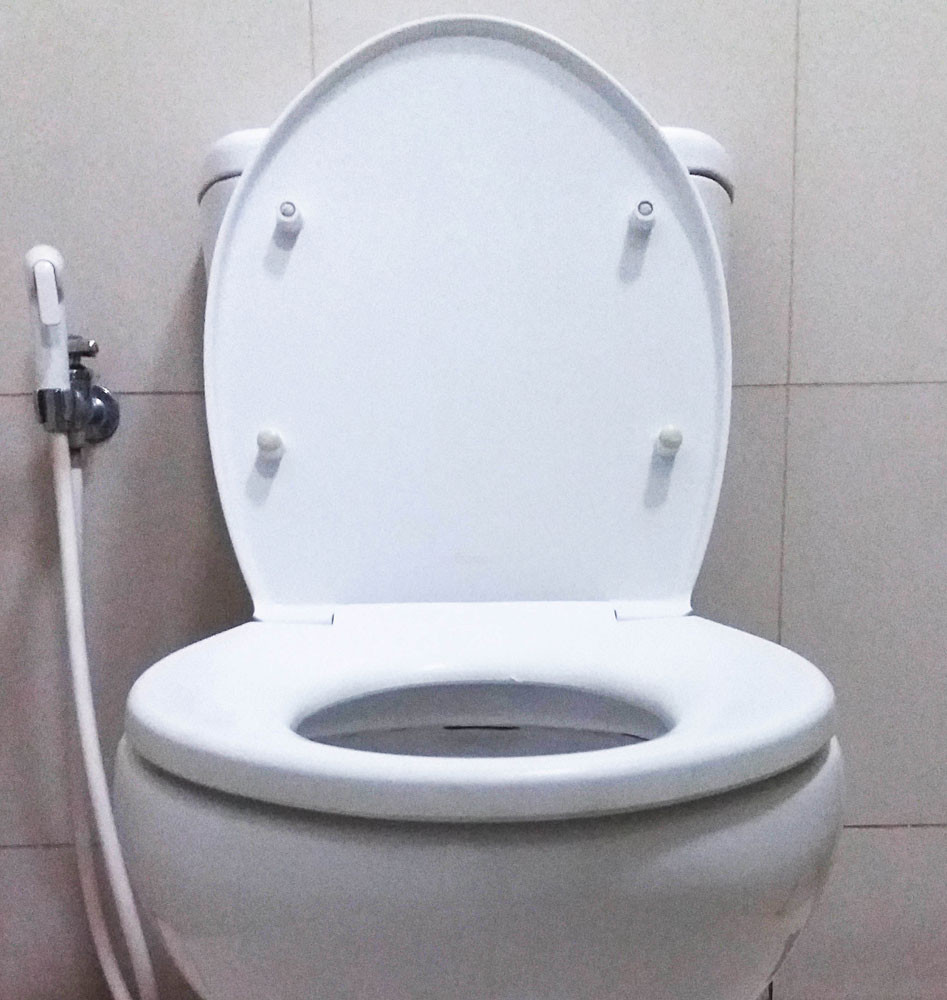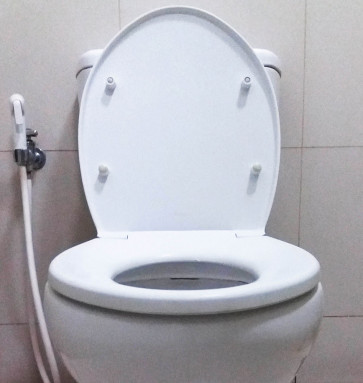Popular Reads
Top Results
Can't find what you're looking for?
View all search resultsPopular Reads
Top Results
Can't find what you're looking for?
View all search resultsIndonesian, Japanese researchers find economic value in urine, feces
The composting toilet was made to help people without access to clean water. In the area around SD 210, people without access to the services of the state-owned water operator have to pay Rp 7,500 (0.53 US cents) for 20 liters of water. Meanwhile, the everyday water use of a family of four is estimated to be around 18 liters per day.
Change text size
Gift Premium Articles
to Anyone
T
he Indonesian Institute of Sciences (LIPI) has launched a composting toilet developed in cooperation with the Research Institute for Humanity and Nature (RIHN) from Japan in Bandung, West Java.
“We want to see if feces and urine have economic value,” LIPI clean technology research center researcher Neni Sintawardani said after the soft launch of a composting technology application at SD 210 Babakan Sinyar state elementary school in Kiaracondong on Monday.
The composting toilet or bio toilet does not need pipes, a septic tank, or waste disposal sewers like conventional toilets. In the bio toilet, feces and urine is captured by sawdust underneath the toilet.
“After defecating, the toilet user has to push a button that will mix the sawdust with the feces,” Neni said. The toilet users can clean up with toilet tissue papers and dump the used papers into the toilet whole right away.
LIPI provided two of these dry toilets to be tried at the school. The school was chosen to be a trial spot because it is located in a densely populated area with difficult access to water.
Neni said they had trialed a community dry toilet 10 years ago in an area near the school. This first toilet had a capacity for holding feces of 1 cubic meter. The current dry toilet’s capacity is 80 liters or 0.08 cubic meters but the toilet has an unlimited capacity for urine.
“The toilet separates the urine and feces because [the feces composting process] must not be exposed to too much water,” Neni said.


















